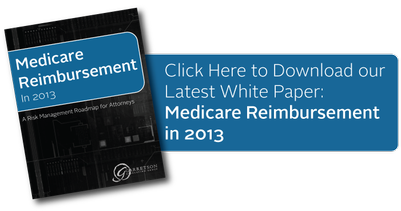Question: When an attorney is reimbursing Tricare out of a personal injury settlement, is the attorney allowed to collect a fee from the portion paid to Tricare or must the attorney collect a fee from the balance after the Tricare lien is paid?
Answer: Federal agencies are prohibited from paying private counsel fees pursuant to 5 U.S.C. §3106. This section states in part, “the head of an Executive department or military department may not employ an attorney or counsel for the conduct of litigation in which the United States, an agency, or employee thereof is a party, or is interested, or for the securing of evidence therefor, but shall refer the matter to the Department of Justice.”
Accordingly, after resolving many TRICARE recovery claims and receiving correspondence from various JAG personnel at military recovery offices, the Garretson team has become accustomed to TRICARE asserting the following key points: a) the U.S.A. will not pay the plaintiff’s attorney a direct fee for being included as subrogee (a direct payment of fees), b) the U.S.A. will not offset its claim to share in the plaintiff’s attorney's fees (an indirect payment of fees), and c) the U.S.A. desires plaintiffs’ attorneys to compute the contingency fee so to compensate themselves on the net amount after first removing the TRICARE claim from the gross amount (an indirect payment of fees).
Basically, TRICARE usually will not offset its recovery claim to acknowledge procurement costs as the Medicare program does. Again, TRICARE officials stress an inability to offset their claim because of the prohibition of paying private counsel fees found in 5 U.S.C. §3106. We have not seen them waiver on this position.
However, there are ways to reduce the TRICARE recovery claim. The first step is to audit the medical bills and remove expenditures that are unrelated to the compensable injury. A next step may be to request that TRICARE choose a compromise reduction on the recovery amount. Evidence can be presented as to why the amount should be reduced and how the plaintiff will utilize the additional proceeds if reduction is granted. The Medical Care Recovery Act gives TRICARE this discretionary reduction authority when the decision is based upon undue hardship on the claimant, or convenience of the government (See 42 U.S.C. § 2652(b) Settlement, release and waiver of claims).



Leave a Comment